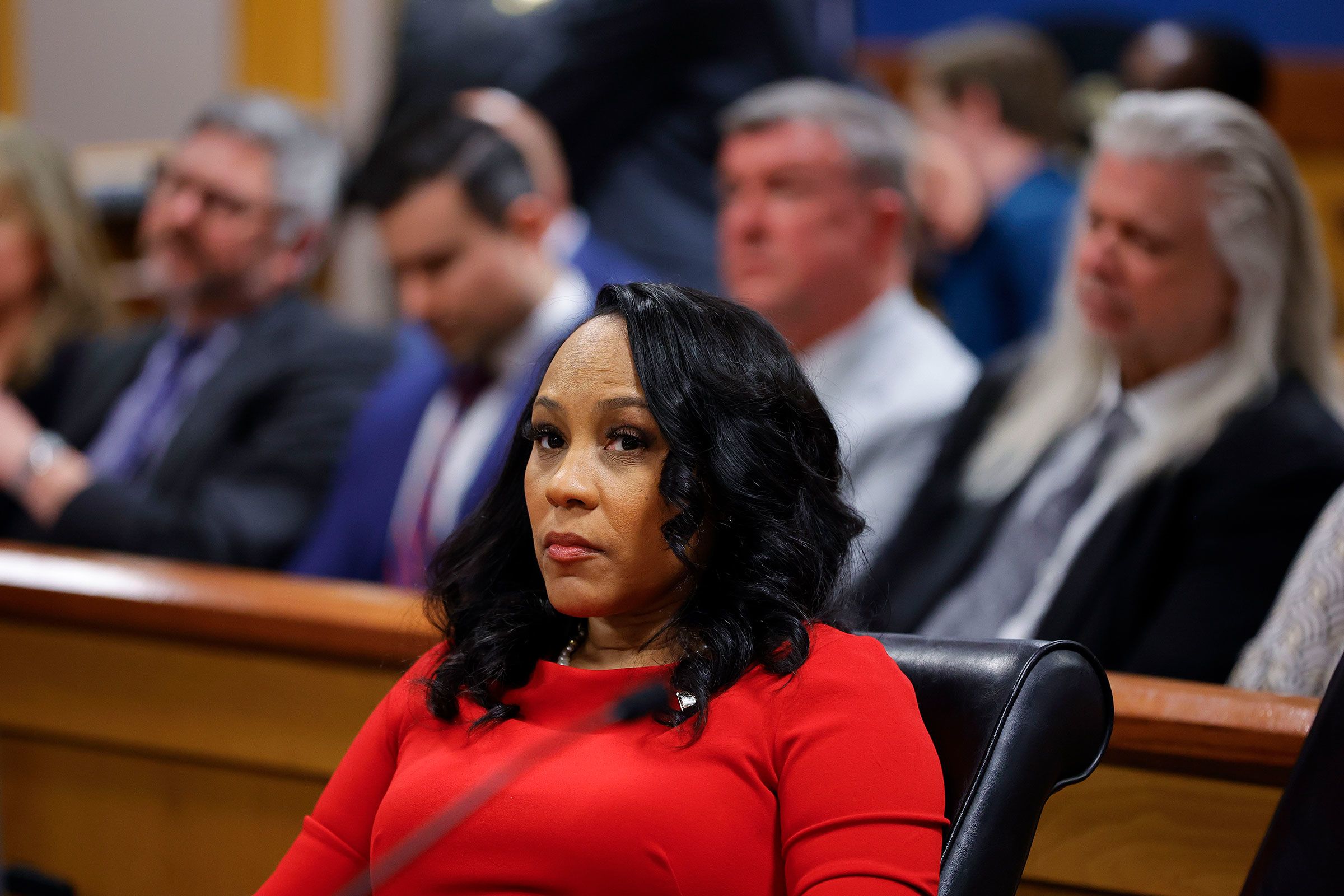Fulton County District Attorney Fani Willis has been given the green light to continue prosecuting the 2020 Georgia election interference racketeering case against former President Donald Trump and 14 co-defendants. The ruling was made by Judge Scott McAfee on Friday, with the condition that Willis severs ties with the special prosecutor, Nathan Wade, with whom she had a romantic relationship.
CNN has sought comments from the district attorney’s office regarding the future course of action in the case. The case, which has been marked by a series of court motions, hearings, and intense testimony from Willis defending her relationship with Wade, can now move forward contingent on Willis’ decision.
Implications of the Ruling
While the ruling concludes a contentious two-month detour that dragged the election subversion case into the personal lives of the prosecutors, it leaves a mark on one of the four prosecution teams pursuing charges against the former president. The recent public hearings on the disqualification matter have brought to light personal revelations that could sway public opinion and potentially influence jurors in Atlanta.
Judge McAfee was critical of Willis and Wade’s relationship, describing it as a result of “bad choices.” He also described Willis’ testimony last month as “unprofessional.”
Willis’ Financial Transactions with Wade
McAfee noted that Willis did not keep records of payments she claims to have made to Wade in reimbursements for vacation travel. However, he found her claim that she paid him back in cash “was not so incredible as to be inherently unbelievable.”
Despite the lack of documentation, McAfee stated that the defendants did not present sufficient evidence indicating that the expenses were not ‘roughly divided evenly.’ He also found that the financial gain from her relationship with Wade was not a motivating factor for Willis to indict and prosecute this case.
Willis’ Prosecution of Trump
Upon her election as DA, Willis inherited a backlog of over 16,000 cases, partly due to the Covid-19 pandemic. She chose to focus on what she believed was the most important case: prosecuting Trump for his attempts to overturn the Georgia election in 2020. Willis spent three years on her investigation, securing 19 indictments after a half-year-long special purpose grand jury process.
In August 2023, Trump was booked into the Fulton County Jail on 13 counts stemming from his efforts to reverse Georgia’s 2020 presidential election result — including racketeering, conspiracy charges and soliciting a public official to violate their oath of office. The indictment charged Trump with “unlawfully soliciting” Georgia Secretary of State Brad Raffensperger to violate his oath of office during their now-infamous January 2, 2021, call in which Trump asked Raffensperger to help him flip Georgia’s results in the 2020 election.
There are 41 overall charges in the case. The first charge involved Georgia’s anti-racketeering law known as the Racketeer Influenced and Corrupt Organizations Act, or RICO. But the next 40 non-racketeering charges stemmed from roughly a dozen key incidents after the 2020 election. The charges in the sweeping indictment include: False statements to and solicitation of state legislatures; false statements to and solicitation of high-ranking state officials; the creation and distribution of false electoral college documents; the harassment of election workers; the solicitation of Justice Department officials; the solicitation of then-Vice President Mike Pence; the unlawful breach of election equipment; and acts of obstruction.
Trump and 14 of his allies have pleaded not guilty to all the charges in the sprawling racketeering case. Four defendants have already accepted plea deals in the case in exchange for their testimony.
This story has been updated with additional developments.

